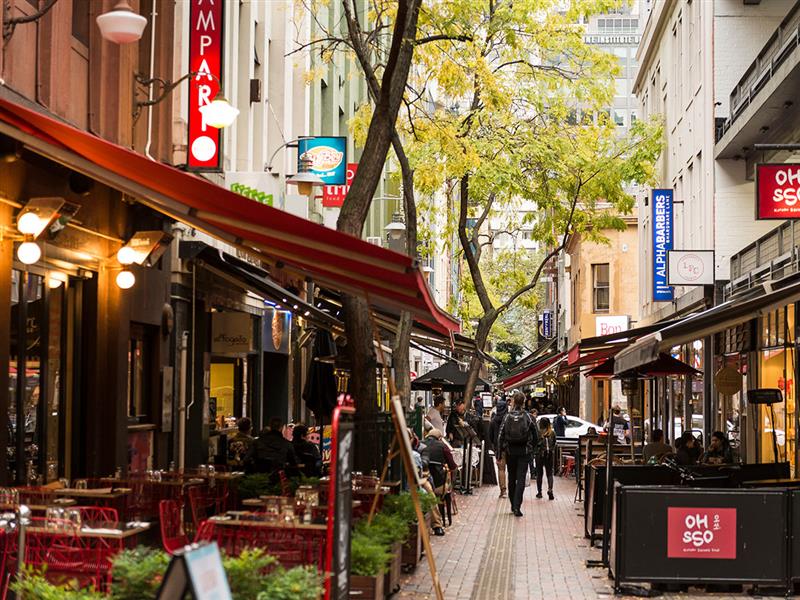Budget-conscious buyers have just four suburbs where they could purchase a house for less than $1 million in inner Melbourne. The inner west’s Maidstone was the cheapest suburb within 10 kilometres of the CBD, recording a median house price of $826,500 over the year to March, on Domain data. It was followed by West Footscray ($900,000), Footscray ($920,000) and Maribyrnong ($928,500). Domain’s chief of research and economics, Dr Nicola Powell, said there were few affordable suburbs within 10 kilometres of the city centre. House prices in all other inner suburbs were above the Melbourne median of about $1,023,000. “When it comes to houses, all the cheapest suburbs are out west, and [these more affordable inner suburbs are] kissing that boundary,” she said. Carlton – a favourite among students – was the cheapest for units, with a median of $320,000, followed by Travancore ($340,000) and West Footscray ($385,000). They, along with the CBD ($470,000), were among 18 suburbs priced below the citywide median of about $527,800. “One of the cheapest areas to buy a unit is Melbourne city. Zero distance to the CBD,” Powell said, noting the number of higher rises and properties available keep prices at lower levels. Value for money was one of the key reasons why seller Christian Frangalas bought into Footscray. “You’ve got your different types of Edwardian, Victorian homes that if you look elsewhere you have to pay 30 per cent more for — at least — in the southeast.” He purchased his three-bedroom house at 72 Swan Street for $910,000 just two days after seeing it, and had intended to live there long-term and renovate down the track. However, rising interest rates pushed Frangalas to rent out the property, and he has now decided to sell what he hoped would be a lucrative investment, so he can buy elsewhere. “I did really like [living there],” he said.“[Footscray] has a lot of character to it, especially when you consider its price and affordability. “It’s one of the best areas to invest in, in the under $1 million range,” Frangalas said. “It was really odd to me how really affordable Footscray is when you think about what you get. “Give it a couple of years and I think there will be bigger price growth in that area.” Jellis Craig listing agent Anthony Christakakis said buyers recognised the value in the suburb and Frangalas’ property. “The demand has been incredible. People say I can’t buy anything in Yarraville at this level,” he said. “People entering the search for the property want to be in Footscray anyway. It’s got more of a nightlife than anywhere in the inner west.” Christakakis compared the inner west to more popular nightlife suburbs like Fitzroy ($1,425,000), the 23rd cheapest suburb within 10 kilometres of the city, and said the value offered was attractive to buyers. “[Footscray has] much better value, but Fitzroy has a really established hospitality and nightlight scene,” he said. “Footscray is definitely the inner west version of Fitzroy, but I won’t be surprised in five years if what Footscray and Fitzroy offer aren’t that far apart. “It’s an extra four kilometres, and you save an extra $500,000. It’s a no-brainer with interest rates at the moment.” Quantify Strategic Insights head of data and insights Angie Zigomanis said the inner north and inner west were more affordable because of their working-class past. “The inner north and the inner west had more manufacturing industry which was undesirable in of itself,” he said. “But obviously that’s changing a bit.” Zigomanis expected suburbs close to the city would continue to become more expensive, but said they would remain popular while they offered relatively affordable prices, particularly during the cost of living crisis. “They’re the best value in the context that they’re the lowest price close to the city,” he said. “The value proposition for these suburbs is stronger for a lot of people who want to move into those areas, which will in turn drive up prices. “Interest rates have gone up, and mortgage serviceability has gone down so a lot of people in the market will need to cut their costs [and look to more affordable areas].”

Melbourne CBD Livability: The Ultimate Guide to City Living
Melbourne’s Central Business District (CBD) is one of the most
